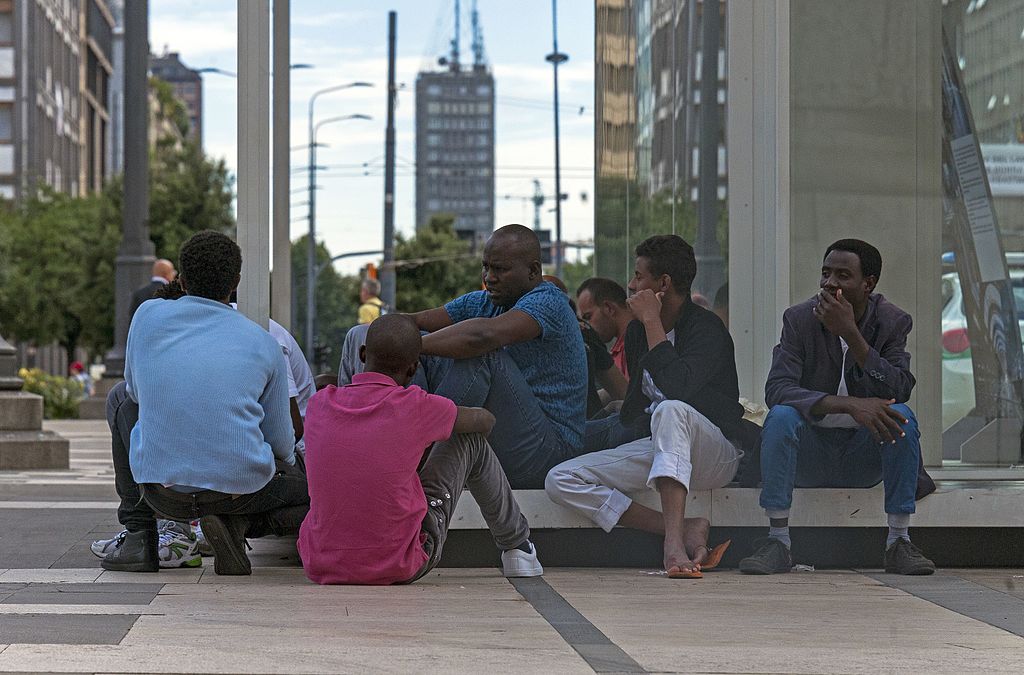by ENRICA RIGO
 African immigrants at Piazza duca d’Aosta, Milan (2016). PHOTO/Wiki Commons
African immigrants at Piazza duca d’Aosta, Milan (2016). PHOTO/Wiki Commons
The decree recently approved by the Italian government restricting the right to asylum is the terrestrial counterpart to the criminalization of NGOs operating in the Mediterranean. The climax to Matteo Salvini’s ongoing campaign against humanitarianism, it will have a fundamental impact on the management of migration within the country.
Salvini’s war against immigration is being waged by land and by sea. It is a war against a section of society that makes up over eight per cent of the country’s population. By sea, the war is being waged through a criminalization of humanitarian rescue operations. This not only pertains to operations carried out by foreign NGOs, which are accused of failing to observe the sovereignty of national borders, but also to operations carried out by the Italian Coast Guard itself. This is a schizophrenia typical of authoritarianism and amounts to a call on the state authorities to close ranks.
No less spectacularly, the war by land has been formalized through a decree approved by the Italian government on 24 September. The process began last July, with a circular that unlawfully obliged the Territorial Commissions for the Recognition of the Right of Asylum to tighten up on granting humanitarian protection. The report justifies the decree as a ‘necessary and urgent’ regulatory intervention in order to reorganize the system of international protection. The report emphasizes the disproportionality between the number of protections regulated at the European level and granted by the Territorial Committees – refugee status and subsidiary protection – and permits granted on humanitarian grounds, which vary between 25 per cent and 28 per cent.
The logic of the interior ministry’s legal departments reverses what ought to be common-sense: instead of asking why international protection is granted so much less in Italy than in many other European countries, and why denials by the Territorial Commissions oblige courts to take on so many cases, the report suggests that the problem is the instrumental use of the application for protection and the exercise of the rights of appeal, with the latter having already severely limited by the regulatory interventions of the previous government.
The decree does not go so far as to reorganize international protection. But it repeals humanitarian protection as a general institution. Current regulations premise protections on ‘serious humanitarian grounds’ or ‘constitutional or international obligations’. In its place, a series of typified permits are to be introduced, based on a predetermined case history. The objective is to eliminate the discretionary power of the asylum authorities: legal certainty is pitted against humanitarian reasonableness.
The constitutional right to asylum, one of the more fruitful products of recent jurisprudence, derives from Article 10 of the Italian Constitution. This is not a case of courts overstepping their democratic mandate. Rather, it concerns the functioning of the rule of law, in which power is not concentrated in a single place and in which judicial assertion of rights represents a route by which even those excluded from representative democracy can assert their rights. Once again, the war against humanitarianism resembles an admonition to close ranks around a hierarchical and authoritarian power.
Eurozine for more
